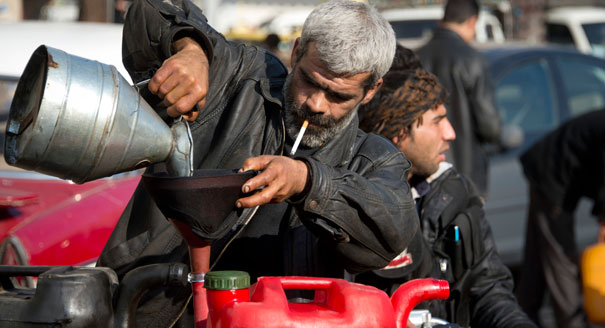Registration
You will receive an email confirming your registration.
The ongoing crisis in Syria has devastated the country on every level. The Carnegie Middle East Center and the Syrian Center for Policy Research (SCPR) hosted a discussion of Syria’s current socioeconomic conditions and evaluated potential post-conflict reconstruction scenarios. Participants examined how the various reconstruction options impact different social and political groups within Syria and discussed which scenario would best serve Syria in the long term.
Discussants included Rabie Nasser and Zaki Mehchy, co-founders and researchers at SCPR. Carnegie’s Yezid Sayigh moderated.
Rabie Nasser
Rabie Nasser is a co-founder and researcher at the Syrian Center for Policy Research in Damascus. He works and publishes on economic analysis and reform in Syria, macroeconomic policies in developing countries, sources of economic growth, and alternative approaches to economic reform.
Zaki Mehchy
Zaki Mehchy is a co-founder and researcher at the Syrian Center for Policy Research in Damascus. He works on socioeconomic monitoring and analysis, labor market, trade, empowerment, multi-dimensional poverty, and development policies.
Yezid Sayigh
Yezid Sayigh is a senior associate at the Carnegie Middle East Center in Beirut, where his work focuses on the Syrian crisis, the political role of Arab armies, security sector transformation in Arab transitions, the reinvention of authoritarianism, and the Israeli-Palestinian conflict and peace process.
